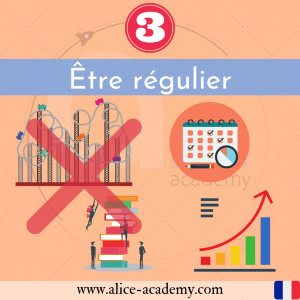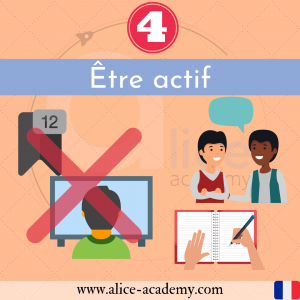
That’s it, you’ve decided to learn or resume studying French! You are very motivated and you can already imagine yourself ordering a croissant 🥐 on the terrace of a Parisian café …

I’m not going to tell you that this is a bad idea (croissants are super good 
To be sure of effectively achieving your goal of learning French 
























Having the right tools 
✅ enrich your vocabulary
✅ receive effective advice
✅ learn about French culture

Bonjour !
I’m Alice, a native French teacher, travel enthusiast ✈ and language lover 💬
With Alice Academy, I want to share my passion for French culture and language 🇫🇷.
© 2025 Alice Academy
N°SIRET: 81113769400014